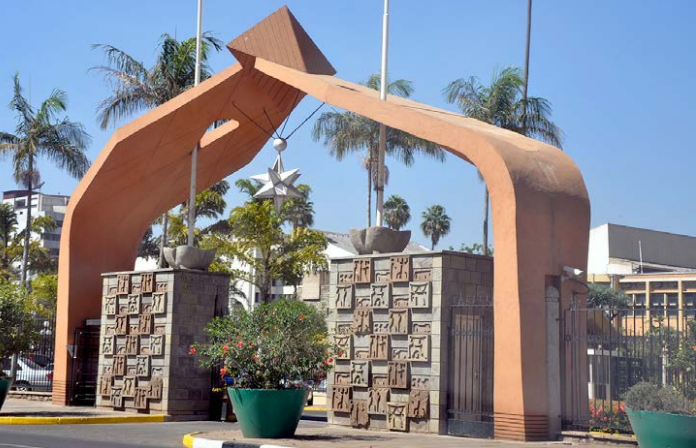Now Cabinet Secretaries to answer questions in Parliament after amendment of Standing Orders

The National Assembly recently adopted the Report of the Procedure and House Rules Committee that amended various sections of the Standing Orders that now allow the Cabinet Secretaries (CSs) to physically appear before the National Assembly and answer questions.
Standing Orders are the rules and regulations that govern the business conduct of the National Assembly. Previously, the CSs would appear before committees for purposes of providing information and giving evidence. The chairpersons of the committees would then prepare and present committee reports before the whole House. This method proved ineffective as the chairpersons would provide inadequate responses to issues presented during plenary due to limited access to information that the CS possessed.
CSs will now appear before the plenary of the National Assembly every Wednesday afternoon with effect from 23rd March 2023. This will allow the CSs to expound on government policy, respond to questions from MPs and provide reports concerning matters under their docket. Prior to the amendment of the Standing Orders, only the CS in charge of National Treasury had the opportunity to speak in the National Assembly together with the President, visiting Heads of State and other dignitaries. Presentation by the CS in charge of National Treasury was limited to public pronouncement of the budget policy highlights and revenue raising measures for the National Government.
Introduction of the physical appearance of CSs before the plenary House has the support of the President who during the opening of the 13th Parliament, urged MPs to come up with mechanisms that could assist CSs to articulate government agenda and explain government policies. The Prime Cabinet Secretary will act as the link between the Legislature and the Executive and shall be responsible for responding to cross cutting ministerial issues alongside the relevant Cabinet Secretary.
The proposal to have CSs appearing before the National Assembly will not be the first. The Constitution provides that the Parliament or any of its committees shall have the power to summon the CS to appear before it for purposes of giving information or evidence. MPs shall ask questions and supplementary questions to the CSs.
Prior to amendment of the Standing Orders, CSs have been appearing before relevant Parliamentary committees to provide information in accordance to the provisions of the Constitution. Additionally, during the 11th Parliament, the National Assembly amended its Standing Order to establish the Committee of General Oversight that comprised of all members of the National Assembly. The Majority Leader was to serve as the link between the Legislature and the Executive and who would prepare agenda of the committee and schedule questions. Members of the Committee of General Oversight were permitted to only ask a maximum of 10 – 20 questions where a maximum of 3 CSs would appear at any one time.
This, unfortunately, did not take off as former President Kenyatta, in his memorandum to the National Assembly called for a stay and review on the provisions of the Standing Order in reference to separation of powers. The Speaker of the National Assembly being the chairperson of the Committee of General Oversight suspended the committee.
Kenya is a presidential system as such the Executive is accountable politically to the Legislature. This gives effect to the doctrine of separation of power where the three arms of the government, Executive, Legislature and Judiciary, provide checks and balances among each other.
MPs asking questions to CSs before the plenary House is also practiced in other jurisdictions with presidential systems of government. Such include the Parliaments of Belarus, France and Gabon. Some of these jurisdictions have explicit constitutional provisions whereas others have provisions in their House procedure rules.
Introduction of the requirement to have CSs appear before Parliament will enhance checks and oversight systems that will result in improved performance of ministries and state departments. Further, it will enhance public interest and knowledge of the Executive affairs that will improve on government accountability by the public.
This notwithstanding, the shift will likely be faced by a couple of anticipated challenges. Some of the challenges include the CS failing to appear before the plenary during the scheduled time due to busy schedules occasioned by the nature of work in the offices they hold. Such absenteeism will lead to a huge number of deferred questions that will likely affect the effectiveness of question time and the system of checks and balances.
In addition, question time will also likely be prone to abuse by MPs in a situation where small issues necessitate the need for the CS to appear before plenary. Different from the usual practice where the CS would be accompanied to the committee by the technical team which is in a better position to respond to issues before the committees; in the plenary, the CS will not be accompanied by the technical team and as such questions, though sent in advance and posted on the day’s order paper, supplementary questions may be deferred for instances where the CS is unable to respond to them.
In conclusion, it will be keen to follow up on question time when the CSs appear before the plenary in all successive sessions following 23rd March 2023. To this end, we might need to remind ourselves of Charles Louis de Secondat, Baron Montesquieu who believed that … “the representative body ought not to exercise the executive function, because it is not suited to it. The legislature ought not to be able to arraign the person entrusted with the executive power, for this would turn the legislature into a body with arbitrary power.”

